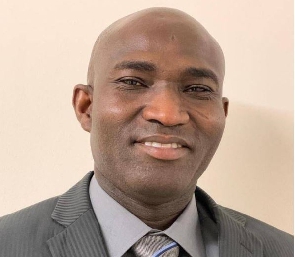The Court of Appeal hearing the petition filed by Mallam Yusif Isa, former Minister of Youth and Sports on Monday gave his counsel three days to study written submissions by the prosecution in order to respond appropriately.
This followed the failure of Mr Anthony Gyambiby, Principal State Attorney, to beat the last Friday's deadline the court's order gave him to present his submissions but managed to do so on Monday morning.
Consequently, the court, presided over by Mr Justice Omari Sasu, with Mrs Justice Sophia Adinyira and Mr Justice Sule Gbadegbe as members, adjourned proceedings to Wednesday, October 17.
On July 20, a Fast Track High Court presided over by Mr Justice Julius Ansah, an Appeal Court Judge, who sat as an additional High Court Judge, convicted Mallam Isa on two counts of stealing and fraudulently causing financial loss to the State.
Mallam Isa was said to have stolen 46,000 dollars meant for the payment of bonuses of players of the senior national team, the Black Stars during a World Cup qualifying match in the Sudanese capital of Khartoum on February 25.
He was accordingly jailed for four years on both counts to run concurrently and ordered to refund the 46,000 dollars within two months or serve two years' jail term.
Furthermore, a 10 million-cedi fine was imposed on Mallam Isa, or in default, he was to serve additional 12 months' imprisonment.
Not satisfied with the court's ruling, Mr Ambrose Dery, his counsel, appealed against it on the grounds that the charges preferred against his client could not be supported by the evidence adduced.
Counsel said the trial judge erred in law when he held that there was direct evidence that Mallam Isa dishonestly appropriated the 46,000 dollars and fraudulently caused loss to the State when there was no direct evidence whatsoever to that effect.
Counsel's further ground for the appeal was that it was wrong for the trial court to have averred that the prosecution discharged its burden of proof beyond all reasonable doubts when there were several doubts raised in the evidence.
Click to view details



Sports News of Tuesday, 16 October 2001
Source: .
















